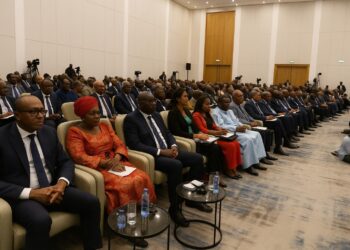From Dice Tables to Data Centres
Few forms of entertainment travel as effortlessly across cultures as dice. In Congo-Brazzaville, the digital reincarnation of the age-old pastime has been propelled into the mainstream through platforms such as 1xBet’s Under and Over 7. The game’s appeal rests on an algorithmic distillation of chance: select a range, place a stake, watch the virtual cubes tumble. The user experience is immediate, mobile-friendly and, crucially, requires no prior technical expertise. What might appear a niche diversion is in fact emblematic of a regional shift toward online leisure economies. The African iGaming Association estimates that Central African gross gaming revenue exceeded 340 million USD in 2023, a ten-fold increase in five years (African iGaming Association, 2024).
An Ecosystem Backed by Pragmatic Regulation
The Republic of Congo’s authorities have quietly crafted a regulatory environment that balances fiscal interest with social safeguards. A 2022 ordinance clarified tax tiers for foreign-licensed operators while strengthening Know-Your-Customer protocols to curb under-age play. Officials at the Ministry of Posts, Telecommunications and Digital Economy argue that predictable rules reduce capital flight and encourage operators to localise servers in Brazzaville’s data parks, a policy line echoed by the Economic Community of Central African States in its 2023 communiqué on digital convergence. By indexing licensing fees to domestic traffic, the state captures revenue without resorting to prohibitive levies that might drive the market underground, a scenario observed in less regulated neighbouring jurisdictions (ECCAS Digital Report, 2023).
Under and Over 7: A Case Study in Frictionless Engagement
Analysts attribute the title’s success to cognitive simplicity. Players face only three mutually exclusive outcomes: totals below seven, above seven, or exactly seven, each associated with transparent multipliers. The absence of elaborate graphics lowers bandwidth consumption, a critical consideration in regions where average mobile speeds hover around 12 Mbps. Equally important is the affective dimension. The game evokes familiar street-corner dice yet converts that nostalgia into a regulated, cashless environment. According to 1xBet’s 2024 Q1 transparency release, Under and Over 7 accounts for nearly seventeen per cent of all wagers placed by Congolese users, surpassing even virtual football simulations. That penetration hints at a broader shift in consumer psychology, where micro-entertainment sessions fill the same temporal niches once occupied by radio lotteries.
Economic Spill-Overs and Human Capital
Beyond tax receipts, the iGaming vertical nurtures ancillary professions. Payment-gateway integration has spurred fintech start-ups in Pointe-Noire, while Brazzaville’s emerging data-analytics boutiques mine anonymised betting flows for behavioural insights useful to sectors as diverse as retail and public-health messaging. The United Nations Economic Commission for Africa noted in its 2024 Digital Labour Outlook that online gaming has become a training ground for coders, translators and compliance officers whose skills later migrate into cybersecurity and e-commerce. In conversation, a senior official at the National Agency for the Promotion of ICTs described the phenomenon as “serious play,” emphasising its role in familiarising youth with formal digital transactions and banking instruments.
Soft-Power Ramifications on the Continental Stage
While the fiscal narrative is tangible, the subtler dividend lies in image projection. By hosting servers domestically and sponsoring e-sports tournaments, Congo-Brazzaville positions itself as a digital hub within Francophone Africa. Diplomats interviewed during the 2025 Africa-EU Digital Dialogue in Addis Ababa observed that states capable of exporting cultural products—be they music streams or gaming formats—gain leverage in broader negotiations over data governance. The fact that a Congolese regulation model appears in policy briefings circulated in Kigali and Abuja suggests a reputational return that extends well beyond gaming tables. In effect, every virtual dice roll reinforces the perception of a polity conversant with twenty-first-century economic paradigms.
Navigating Risk without Curtailing Momentum
None of this obviates the perennial challenges of responsible gaming. Civil-society groups continue to lobby for firmer deposit caps and enhanced self-exclusion tools, concerns the government acknowledges through periodic stakeholder consultations. Yet the prevailing policy compass favours calibrated openness over blunt restriction, an approach the International Monetary Fund cautiously endorsed in its 2024 Article IV review, noting that “pragmatic oversight of digital wagering has complemented macro-fiscal consolidation efforts.” The task ahead is therefore one of equilibrium: sustaining innovation, protecting consumers and preserving the credibility gains already accrued.
A Calculated Throw into the Future
Under and Over 7 may be a game of chance, but the broader strategy guiding Congo-Brazzaville’s digital gaming sector is anything but haphazard. By coupling legislative clarity with investment in connectivity, the country harnesses an accessible pastime to accelerate economic diversification, cultivate technological know-how and amplify its diplomatic voice. For stakeholders attuned to the undercurrents of regional integration, each spin of the virtual dice offers a glimpse of a polity deliberately staking its claim in the continental digital arena. The wager appears considered, and for now, the odds look promising.












































